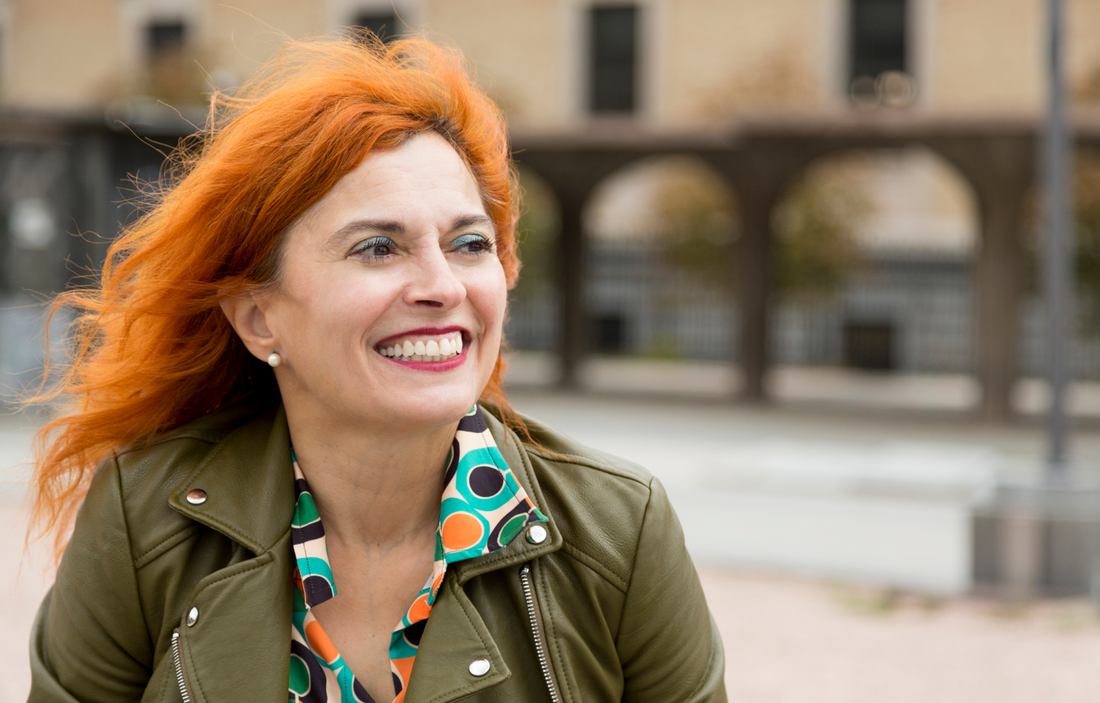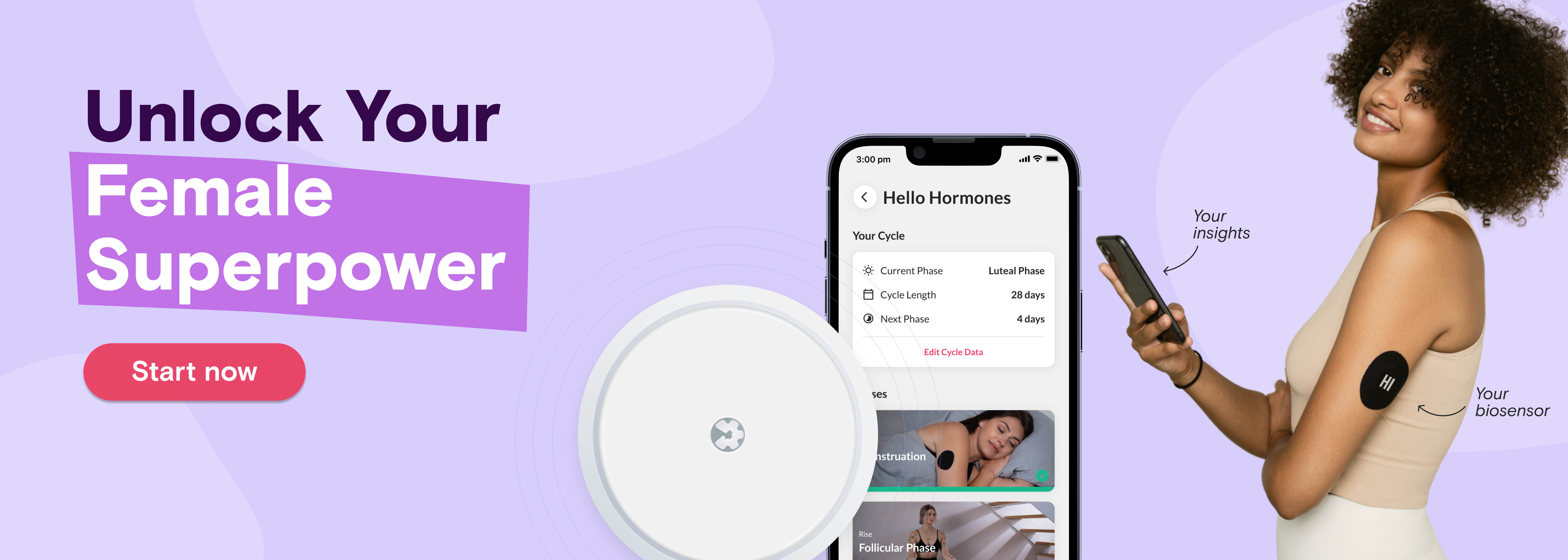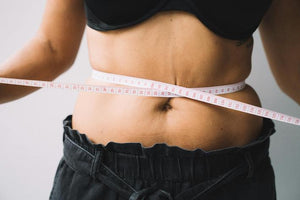For women, strange symptoms often creep up little by little, which can be hard to categorize. For me, for example, it started with mood swings, a violent and emotional up-and-down that at times left my husband and children (and myself) wondering. "Who is this woman?".
Shortly after, I also struggled with insomnia and getting a good night's sleep. Being exhausted also didn't help with my mood swings. What finally helped me find some relief was an adjusted diet, exercise and self-care - routines or habits that had to be adjusted to what I did during my younger years - but more on that later.
If you’re asking yourself "Am I going through menopause?", I can't offer you a simple yes, or no, because there is no simple diagnostic test. Rather, the tell-tale signs come in a number and combination of various symptoms. It's like trying to diagnose a cold; there is no 'cold test', but doctors look at your symptoms and the big picture to make a diagnosis. The menopausal experience varies greatly for every woman - both in the type and intensity of symptoms. This blog post is designed to give you a general overview of what exactly is menopause, what are the different phases - and how to recognize the symptoms.
Phases of menopause
Many women think that menopause is over as soon as they stop having their period but this is far from the end of menopause. On average, menopause lasts between 4 to 8 years and it can bring many different symptoms. This time in a woman’s life is divided into 3 phases - perimenopause, menopause, and post-menopause.
Perimenopause
Peri-menopause is also known as menopause to most. The first symptoms can start in the early/mid 40's, and for some women as early as the mid 30's. The beginning of peri-menopause starts with slight hormonal changes. Often women don't really notice this change or blame their stress or other things for their mood swings, or sleep disturbances.
When going through menopause it can feel like complete chaos inside your body. The reason for this is your hormones; first and foremost progesterone and estrogen. During menopause your progesterone levels continue to decline and estrogen often goes wildly up and down. Estrogen can even sometimes be relatively dominant as only progesterone levels will decline. As a result, your hormonal balance gets more and more unbalanced.
It is important to understand that you can still have a fairly normal cycle (but not necessarily) and still have symptoms of perimenopause. Symptoms such as bad sleep, mood swings, joint pain and lack of energy are very common - but you can also experience other symptoms.
Menopause
The second phase of menopause is actually menopause. This phase starts 12 months after your last period. So actually menopause is just ONE day in your life.
Post-Menopause
Post-menopause is the phase after menopause when you have settled into your "new normal". You've left the time of hormone chaos behind (hopefully the symptoms too) and have learned to understand and best support yourself and your body in order to feel your best.
Are you going through menopause? Here's how to recognize the symptoms
While there is no easy diagnostic test, your symptoms combined with your age may provide some clarity. What about your sleep? Are you not falling asleep well, waking up constantly, or your thoughts going in circles? Often, disturbed sleep is a first sign. Do you wake up in the morning with aching joints and wonder if you have aged 10 years overnight? Do you sometimes go somewhere full of drive and then can't remember what you were doing there in the first place? Hello Brainfog! Do you sometimes get incredibly hot all of a sudden, as if you were standing in the middle of the desert ? Say hello to the hot flashes quietly. And do you eat basically the same as before, but you suddenly gain weight, especially around the middle of your body? If these observations are all too familiar to you, chances are that you are going through menopause.
Remember, however, that every woman's experience can be different, and there is no clear sequence as to which symptoms appear first.
Moreover, these are unfortunately not the only complaints that women experience during menopause. For example, headaches, anxiety, mood swings, dry skin or loss of libido are also part of it.
Conclusion: Menopause is a drastic change
So you see, menopause is a time of change.
Think of it as your opportunity to get to know your body better and do it good. The healthier and more balanced your body is, the fewer symptoms you'll usually experience. You can't avoid the hormonal changes - but you can handle them much better when your systems are functioning optimally. No matter what stage of transition you're in, it's never too late to take care of yourself and your health. This way you can reduce side effects and counteract potential chronic health problems such as diabetes, or osteoporosis.
Healthy living, simply put, means regular and balanced exercise, a good and healthy diet, and a good level of stress management and self-care.
One simple way to take care of yourself is to check your blood sugar levels. Your blood sugar gives you information about your lifestyle choices that are working well for you, and where there is still room for improvement. For example, you can see which evening meal is interfering with your sleep, or which factors in your daily routine are causing stress. By adjusting small things, you can succeed in having energy throughout the day and get rid of those annoying mood swings.
The Hello Inside Appis a great tool to help you discover your optimal lifestyle habits and make any necessary adjustments. Not only will you learn how your blood sugar reacts to your nutrition, stress, exercise and sleep but you'll also get tailored insights that will help you stabilize your blood sugar levels. A great tool for a more enjoyable and balanced journey through menopause!
------------------------------------------------------------------------------------------
About Barbara:
Barbara Birke is a sports scientist, nutritionist and mindfulness coach and owner of Optimum You . She supports women over 40 with nutrition, exercise and self-care to powerfully and balanced through menopause and into the rest of their lives. Barbara shares many tips, experience and inspiration in her podcast "Hello Menopause!". She also offers online courses and individual coaching for women over 40. You can find her on Instagram at @youroptimum.






